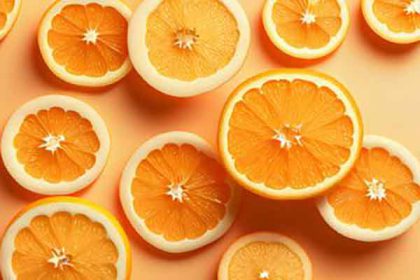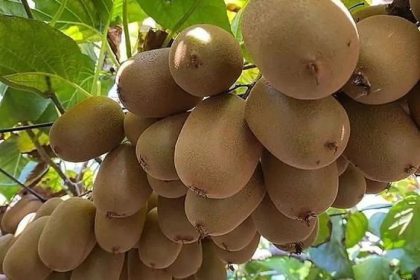Potato disadvantages for skin and health and stomach and liver
Potato disadvantages
Potato disadvantages for skin and health and stomach and liver on Nichooli site. We hope this article will be of interest to you.
the text covers a variety of topics related to potatoes, including their health benefits, disadvantages for health, stomach, and liver, as well as their medicinal uses and nutritional content. It also discusses the advantages of using potatoes for skin care. The text highlights the nutritional value of potatoes, their versatility in cooking, and their potential for various health and skincare benefits. It emphasizes the importance of moderation and balanced consumption, particularly when it comes to processed potato products.
10 Health benefits of potatoes
Potatoes, a staple in many households around the world, are more than just a tasty side dish. They offer a range of health benefits that make them a valuable addition to your diet. Here are 10 health benefits of potatoes:
1. Rich in Nutrients: Potatoes are a good source of essential nutrients, including vitamin C, vitamin B6, potassium, and dietary fiber. They are particularly high in vitamin C, which plays a crucial role in supporting the immune system.
2. High in Fiber: The fiber in potatoes aids in digestion and helps prevent constipation. It also contributes to a feeling of fullness, which can be beneficial for weight management.
3. Good Source of Potassium: Potatoes are one of the best dietary sources of potassium, a mineral that helps regulate blood pressure and maintain proper muscle and nerve function.
4. Supports Heart Health: The fiber, potassium, and phytonutrients in potatoes contribute to heart health. They can help lower blood pressure and reduce the risk of heart disease.
5. Boosts Energy: Potatoes are an excellent source of carbohydrates, providing a steady supply of energy. They are often a preferred choice for athletes and those with active lifestyles.
6. Aids in Weight Management: Potatoes have a high satiety index, which means they help you feel full for longer, reducing overall calorie intake.
7. Supports Bone Health: Potatoes contain magnesium and phosphorus, both of which are essential for maintaining strong bones.
8. Skin Health: Vitamin C in potatoes can help improve skin health by promoting collagen production and reducing the signs of aging.
9. Anti-Inflammatory Properties: Potatoes have been used traditionally for their anti-inflammatory properties and may help with conditions like arthritis.
10. Promotes Digestive Health: The fiber in potatoes supports a healthy digestive system by promoting regular bowel movements and preventing gastrointestinal issues.
Disadvantages of potato for skin
While potatoes have several health benefits, they can also have disadvantages for the skin when used in certain ways. Here are a few drawbacks:
Potential for Allergies: Some individuals may be allergic to potatoes and could experience skin irritation, redness, or itching upon contact.
High Glycemic Index: Potatoes have a high glycemic index, which means they can cause blood sugar spikes when consumed in large quantities. This may contribute to skin issues like acne in some people.
15 Uses of potatoes
Potatoes are incredibly versatile and can be used in numerous ways, both in the kitchen and beyond. Here are 15 creative uses for potatoes:
Mashed Potatoes: A classic side dish, mashed potatoes are creamy and comforting.
French Fries: Crispy, golden, and delicious, these are a favorite snack.
Potato Salad: A great addition to picnics and barbecues, potato salad is both tasty and filling.
Roasted Potatoes: Seasoned and roasted to perfection, they make a delightful side dish.
Potato Soup: Creamy and hearty, potato soup is a comforting option on cold days.
Potato Wedges: Thick-cut and seasoned with various spices, they’re a popular snack.
Scalloped Potatoes: Thinly sliced and baked in a creamy sauce, this dish is a crowd-pleaser.
Hash Browns: Crispy and golden, they’re a favorite for breakfast.
Potato Pancakes: A tasty way to use up leftover mashed potatoes.
Potato Gnocchi: Soft, doughy dumplings often served with various sauces.
Potato Skins: A popular appetizer, loaded with toppings like cheese, bacon, and sour cream.
Potato Stamps: Carve designs into potato halves and use them as stamps for art projects.
Homemade Potato Chips: Slice thin, fry until crispy, and season to your liking.
Natural Cleaning Agent: Use potato slices to clean rust or tarnish from metal surfaces.
Soothing Compress: Apply a cooled, grated potato compress to soothe sunburn or puffy eyes.
Uses of potato for skin
Potatoes have been used for skincare for their potential benefits:
Dark Circle Reduction: Placing potato slices on the eyes can help reduce dark circles and puffiness.
Natural Skin Brightener: Potato juice can be applied to the skin to lighten blemishes and even out skin tone.
Soothing Sunburn: Applying grated potato or potato juice to sunburned skin can provide relief and aid in healing.
Acne Treatment: Some claim that potato slices can help reduce the redness and inflammation associated with acne when applied topically.
Medicinal uses of potato
The potato, a humble tuber, is often celebrated for its culinary versatility, but it also possesses various medicinal properties that have been recognized and utilized for centuries. Let’s delve into the remarkable medicinal uses of the potato.
Wound Healing: Potatoes have natural astringent properties that can help heal minor cuts, burns, and wounds. Applying a slice of raw potato to the affected area can soothe pain and reduce inflammation.
Digestive Health: Potatoes, especially when boiled or mashed, can be beneficial for individuals with gastrointestinal issues. They are easy to digest and can provide relief from conditions like gastritis and indigestion.
Anti-Inflammatory: The anti-inflammatory properties of potatoes can be useful in alleviating inflammatory conditions such as arthritis. Some people use potato poultices to reduce pain and swelling in affected joints.
Soothing for the Eyes: Thin potato slices are often used to reduce puffiness and dark circles around the eyes. The natural astringency of potatoes can help soothe tired or irritated eyes.
Skin Health: Potatoes are rich in vitamin C, which promotes collagen production, aiding in skin health and reducing the signs of aging. Some skincare products even incorporate potato extracts for their potential skin-brightening effects.
Fever Reduction: Potato wraps, where grated potatoes are applied to the body, are believed to help reduce fever. The cooling effect of the potatoes can provide comfort to individuals with high body temperatures.
Respiratory Health: In some traditional medicine practices, inhaling the steam from boiled potatoes is considered beneficial for respiratory conditions like bronchitis. It can help soothe the airways and reduce congestion.
Kidney Health: Consuming potato juice is believed to be beneficial for kidney health. It may help in preventing the formation of kidney stones and promote overall kidney function.
Potato nutrition
Understanding the nutritional composition of potatoes is crucial to appreciate their medicinal potential. Potatoes are a rich source of essential nutrients, including:
Carbohydrates: Potatoes are primarily composed of carbohydrates, providing a quick and sustainable source of energy.
Dietary Fiber: They contain dietary fiber, which aids digestion, promotes a feeling of fullness, and helps regulate blood sugar levels.
Vitamins: Potatoes are a good source of vitamin C, which boosts the immune system and supports skin health. They also contain vitamin B6, which is important for brain function and metabolism.
Minerals: Potatoes are high in potassium, an electrolyte that regulates blood pressure and maintains proper muscle and nerve function. They also contain small amounts of magnesium and phosphorus, essential for bone health.
Antioxidants: Potatoes are rich in antioxidants, which help combat oxidative stress and reduce the risk of chronic diseases.
Protein: While not a significant source of protein, potatoes do contain some, which is essential for tissue repair and growth.
Potato medicine name
While potatoes themselves are not a specific medicine with a designated name, various pharmaceutical and herbal preparations may contain potato extracts or derivatives. These formulations are often used for their potential health benefits, including skin care products with potato extracts for their skin-brightening properties.
Potato disadvantages for health
Potatoes are undoubtedly a popular and versatile vegetable that’s consumed worldwide in various culinary forms, from mashed potatoes to French fries. However, like most foods, they have both advantages and disadvantages for health. It’s important to be aware of these potential drawbacks to make informed dietary choices.
High Glycemic Index: One of the primary disadvantages of potatoes is their high glycemic index (GI). This means that they can cause a rapid spike in blood sugar levels when consumed. High-GI foods can be problematic for individuals with diabetes, potentially leading to blood sugar fluctuations.
Weight Gain: Consuming potatoes in excess, especially in forms like french fries and potato chips, can contribute to weight gain. These foods are often high in calories and unhealthy fats, which can lead to obesity when consumed regularly.
Acrylamide Formation: When potatoes are cooked at high temperatures, such as frying or baking, they can produce acrylamide, a chemical compound that’s considered a potential carcinogen. This is a concern for those who regularly consume deep-fried or heavily processed potato products.
Lack of Essential Nutrients: While potatoes are a good source of certain nutrients like vitamin C, vitamin B6, and potassium, they can lack some essential nutrients such as protein and healthy fats. Relying too heavily on potatoes as a dietary staple can lead to nutritional imbalances.
Potato disadvantages for stomach
Digestive Issues: Some individuals may experience digestive discomfort, gas, or bloating after consuming potatoes. This can be due to their high starch content and the presence of certain sugars that are hard to digest for some people.
Solanine Content: Potatoes contain a naturally occurring toxic chemical called solanine. While the levels of solanine in commercially grown potatoes are generally safe for consumption, green potatoes or those that have sprouted may contain higher levels. Ingesting solanine can lead to digestive issues and even toxicity.
High Fiber Content: While fiber is generally considered beneficial for digestive health, excessive consumption of high-fiber foods like potatoes can cause diarrhea and other gastrointestinal discomfort in some individuals.
Potato disadvantages for liver
Fatty Liver Disease: High consumption of high-GI foods like potatoes, especially in the form of processed products, can contribute to the development of non-alcoholic fatty liver disease (NAFLD). NAFLD occurs when excess fat accumulates in the liver, potentially leading to more severe liver conditions.
Excessive Processing: Some potato-based products undergo heavy processing, which often includes frying. This can result in the formation of harmful trans fats, which can negatively affect liver health when consumed regularly.
High-Calorie Density: Fried potato products like French fries and potato chips are calorie-dense and often high in unhealthy fats. Regularly consuming these foods can lead to weight gain, obesity, and metabolic issues, which can strain the liver.
Familiarity with other properties of potatoes
We have prepared this section for you to learn more about benefits of potato.
Potato benefits
The iron, phosphorous, calcium, magnesium, and zinc in potatoes all help the body to build and maintain bone structure and strength.
A low sodium intake is essential for maintaining healthy blood pressure, but increasing potassium intake may be just as important. Potassium encourages vasodilation or the widening of the blood vessels.
The potato’s fiber, potassium, vitamin C, and vitamin B6 content, and lack of cholesterol, all support heart health.
Choline is an important and versatile nutrient that is present in potatoes. It helps with trusted sources of muscle movement, mood, learning, and memory.
Potatoes contain folate. Folate plays a role in DNA synthesis and repair, and so it prevents many types of cancer cells from forming due to mutations in the DNA.
The fiber content in potatoes helps prevent constipation and promotes regularity for a healthy digestive tract.
Dietary fibers are commonly recognized as important factors in weight management and weight loss.
Potatoes are a great source of vitamin B6. This plays a vital role in energy metabolism, by breaking down carbohydrates and proteins into glucose and amino acids. These smaller compounds are more easily utilized for energy within the body.
Collagen is the skin’s support system. Vitamin C works as an antioxidant to help prevent damage caused by the sun, pollution, and smoke. Vitamin C also helps collagen smooth wrinkles and improve overall skin texture.
Research has found that vitamin C may help reduce trusted Source the severity and duration of a cold. Potatoes are a good source of vitamin C.
Potato Nutrition
How healthful a potato is in the diet depends to some extent on what is added or how it is cooked. Oil, sour cream, and butter all add calories, but the plain potato itself is relatively low in calories.
It also provides important nutrients, such as vitamin C, vitamin B6, and various minerals.
A 100-gram (g) or 3.5- ounce serving is a little more than half of a medium-sized potato. This white potato, baked with skin, contains trusted Sources:
94 calories
0.15 grams of fat
0 grams of cholesterol
21.08 grams of carbohydrate
2.1 grams of dietary fiber
2.10 grams of protein
10 milligrams (mg) of calcium
0.64 mg of iron
27 mg of magnesium
75 mg of phosphorus
544 mg of potassium
12.6 mg of vitamin C
0.211 mg of vitamin B6
38 micrograms (mcg) of folate
Potatoes also provide niacin, choline, and zinc. Different varieties provide slightly different nutrients.
Sodium: Whole, unprocessed potatoes contain very little sodium, only 10 mg per 100 g (3.5 ounces), or less than 1 percent of the suggested daily limit. However, this is not true of processed potato products, such as French fries and potato chips.
Alpha-lipoic acid: Potatoes also contain a compound known as alpha-lipoic acid (ALA), which helps the body to convert glucose into energy.
Some evidence suggestsTrusted Source that alpha-lipoic acid can help control blood glucose levels, improve vasodilation, protect against retinopathy in diabetic patients, and preserve brain and nerve tissue.
Quercetin: Quercetin, a flavonoid found in potato skin, appears to have a rusted Source of an anti-inflammatory and antioxidant effect that protects the body’s cells from damage by free radicals.
Flavonoids are a kind of phytonutrient, organic compounds that are believed to help protect against disease.
Antioxidants: Potatoes contain vitamin C, which acts as an antioxidant. Antioxidants may help prevent cell damage and cancer and promote healthy digestion and cardiovascular functions.
Fiber: The fiber in potatoes helps to maintain a healthy digestive system and circulation.





















